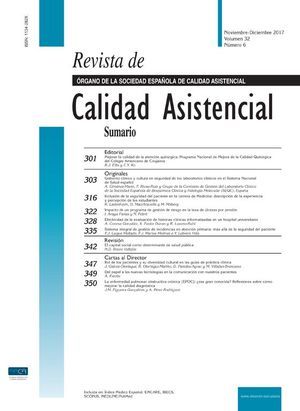En la literatura clínica ha habido una tendencia a reducir la autonomía del paciente a la toma de decisiones, tal vez por influencia de la tradición filosófica-jurídica y porque, inicialmente, se centró en la medicina hospitalaria y de urgencias. En este trabajo se presenta un modelo de autonomía más amplio, que además de las estrictas cuestiones médicas y el respeto a la libertad de elección, preste más atención a las particularidades que caracterizan a las personas necesitadas de asistencia sanitaria, es decir, los aspectos biológicos, psicológicos y sociales que les permiten o impiden mayor grado de autonomía. Con ese fin, se identifican y describen todos los estadios o momentos en los cuales se presenta la cuestión de la (in)capacidad de autogobierno del paciente a lo largo de todo el proceso de asistencia y cuidado. Ello da lugar a una noción más compleja y multidimensional de la autonomía del paciente que, además de la capacidad para tomar decisiones libres y terapéuticamente informadas —autonomía decisoria—, recoge también la capacidad de llevar a cabo actividades vitales básicas, de realizar tareas que una mayoría estadística de personas hace (como comer, ver, caminar, una cierta comprensión de situaciones complejas, etc.) —autonomía funcional—, la capacidad por parte del paciente para planificar, secuenciar y llevar a cabo tareas relacionadas con el manejo de sus enfermedades crónicas, esto es, la capacidad para cumplir y mantener en el tiempo el plan terapéutico elegido —autonomía ejecutiva—, la capacidad para retener, comprender y comunicar a los demás, de una manera lo suficientemente coherente y comprensible, los principales aspectos identitarios que han caracterizado al paciente durante su vida —autonomía narrativa— o el poder del paciente de disponer y controlar la información relativa a su situación del modo que estime conveniente —autonomía informativa—.
There has been a trend in the clinical literature to reduce patient autonomy to decision-making, perhaps due to the influence of the philosophical-legal tradition and because of its initial hospital and emergency medicine focus. This paper presents a broader model of autonomy, which, in addition to strict medical issues and respect for freedom of choice, pays more attention to the specificities that characterise people in need of health care, i.e., the biological, psychological, and social aspects that allow or impede them a greater degree of autonomy. To that end we identify and describe all the stages or points at which the question arises of the patient's (in)capacity for self-management throughout the care process. This generates a more complex and multidimensional notion of patient autonomy which, in addition to the ability to make free and therapeutically informed decisions —decisional autonomy—, also includes the ability to carry out basic vital functions and tasks that can be performed by a statistical majority of people (such as eating, seeing, walking, understanding complex situations, etc.) —functional autonomy—, the patient's capacity to plan, sequence, and perform tasks related to the management of their chronic diseases, i.e., the capacity to implement the chosen therapeutic plan and maintain it over time—executive autonomy—, the patient's capacity to retain, understand and communicate coherently and understandably for others the principle identifying aspects that have characterised them during their lives—narrative autonomy—, and the ability of patients to access and control information relative to their situation for themselves—informative autonomy—.
Artículo
Comprando el artículo el PDF del mismo podrá ser descargado
Precio 19,34 €
Comprar ahora







